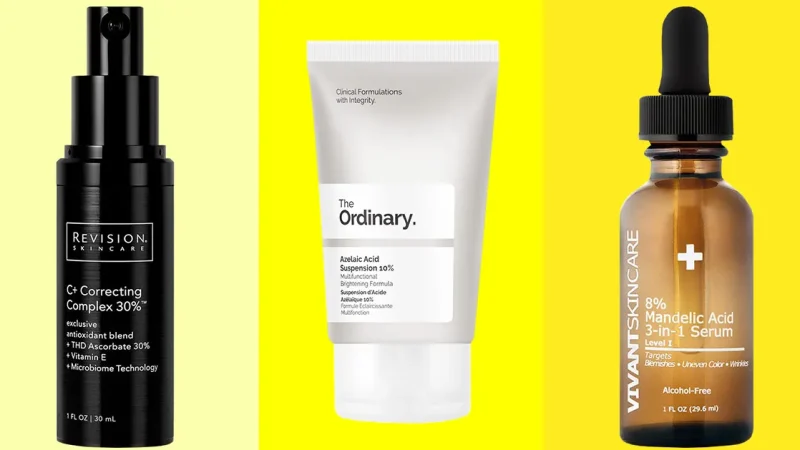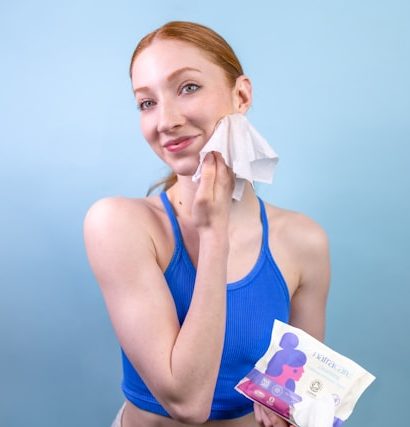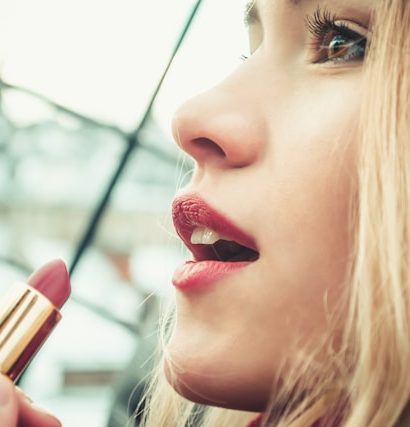Understanding Pigmentation & How to Treat It
Skin pigmentation refers to dark spots, uneven skin tone, and discoloration caused by sun exposure, aging, hormones, and acne scars. While pigmentation is harmless, many people seek effective skincare solutions to achieve clear, radiant skin.
- Common types: Hyperpigmentation, melasma, sunspots, and post-inflammatory marks.
Causes: UV exposure, hormonal changes, inflammation, and genetics.
Treatments: Skincare ingredients, professional treatments, and sun protection.
This guide explores the best skincare for pigmentation, including key ingredients, top products, and dermatologist-approved treatments.
Best Skincare Ingredients for Pigmentation
Vitamin C – Brightens & Protects
- A powerful antioxidant that fades dark spots and boosts collagen.
Protects against sun damage and free radicals.
Works best with sunscreen to prevent further pigmentation.
Best Products: SkinCeuticals C E Ferulic, TruSkin Vitamin C Serum.
Niacinamide – Evens Skin Tone
- Reduces inflammation, dark spots, and redness.
Strengthens the skin barrier and prevents moisture loss.
Safe for sensitive and acne-prone skin.
Best Products: The Ordinary Niacinamide 10% + Zinc 1%, Paula’s Choice 10% Niacinamide Booster.
Alpha Arbutin – Gentle Skin Brightener
- A natural skin-lightening agent that inhibits melanin production.
Works well for melasma, sunspots, and post-acne pigmentation.
Best Products: The Ordinary Alpha Arbutin 2% + HA, Naturium Alpha Arbutin Serum.
Retinol (Vitamin A) – Speeds Up Cell Turnover
- Exfoliates dead skin cells to reveal brighter, fresher skin.
Boosts collagen production, reducing fine lines and pigmentation.
Should be used at night, followed by sunscreen in the morning.
Best Products: CeraVe Resurfacing Retinol Serum, Differin Gel.
Azelaic Acid – Fades Pigmentation & Controls Acne
- Targets post-inflammatory hyperpigmentation (PIH) from acne.
Has anti-inflammatory and antibacterial properties.
Safe for sensitive and rosacea-prone skin.
Best Products: The Ordinary Azelaic Acid Suspension 10%, Paula’s Choice 10% Azelaic Acid Booster.
Kojic Acid – Natural Skin Lightener
- Inhibits melanin production, lightening dark spots and scars.
Derived from fermented rice and fungi.
Best Products: PCA Skin Pigment Gel, Kojie San Kojic Acid Soap.
Essential Skincare Routine for Pigmentation
Step 1: Gentle Cleanser
Use a hydrating, non-stripping cleanser to maintain skin barrier health.
Try: CeraVe Hydrating Facial Cleanser, La Roche-Posay Toleriane Cleanser.
Step 2: Brightening Serum (AM & PM)
- AM: Use Vitamin C & Niacinamide for protection and brightening.
PM: Apply Retinol or Alpha Arbutin to boost skin renewal.
Try: The Ordinary Alpha Arbutin 2% + HA, SkinCeuticals C E Ferulic.
Step 3: Moisturizer for Barrier Repair
A hydrated skin barrier helps prevent further pigmentation issues.
Try: CeraVe PM Facial Moisturizing Lotion, The Inkey List Peptide Moisturizer.
Step 4: Sunscreen (SPF 50+) – A MUST for Pigmentation!
UV exposure worsens dark spots! Always use broad-spectrum sunscreen.
Try: EltaMD UV Clear SPF 46, La Roche-Posay Anthelios Melt-in Sunscreen.
Professional Treatments for Stubborn Pigmentation
- Chemical Peels – Exfoliate deeply to fade discoloration.
Laser Therapy – Targets deep pigmentation like melasma.
Microneedling – Stimulates collagen to improve skin texture.
Hydroquinone (prescription) – A strong skin-lightening agent for stubborn pigmentation.
Consult a dermatologist to find the best treatment for your skin type.
Best Skincare Products for Pigmentation (2024)
| Category | Top Product | Why It Works |
| Vitamin C Serum | SkinCeuticals C E Ferulic | Brightens skin, fights free radicals |
| Niacinamide | The Ordinary Niacinamide 10% | Reduces dark spots & oil production |
| Retinol | Differin Gel | Speeds up skin renewal, fades pigmentation |
| Sunscreen (SPF 50) | EltaMD UV Clear | Prevents new pigmentation, lightweight |
| Azelaic Acid | Paula’s Choice 10% Azelaic Acid | Great for acne-prone & sensitive skin |
Using a combination of these ingredients gives the best results for pigmentation!
Conclusion
- Brightening ingredients like Vitamin C, Niacinamide, and Retinol help fade dark spots.
Sunscreen (SPF 50+) is essential to prevent further pigmentation.
Professional treatments like chemical peels and laser therapy can speed up results.
Consistency is key – Follow a dedicated skincare routine for 4–12 weeks to see improvement.
Want to achieve clear, even-toned skin? Start your skincare routine today!
Have pigmentation concerns? Share your experiences in the comments!
FAQs
1. How long does it take to see results?
Pigmentation fades within 4–12 weeks, depending on skin type and treatment consistency.
2. Can pigmentation go away naturally?
Mild pigmentation can fade over time, but proper skincare and sun protection speed up the process.
3. Does sunscreen help pigmentation?
Yes! Sunscreen prevents UV rays from darkening spots and helps skincare ingredients work effectively.
4. What is the best ingredient for melasma?
Tranexamic Acid, Kojic Acid, and Hydroquinone are effective for melasma.
5. Can home remedies fade pigmentation?
Some natural ingredients like aloe vera and licorice extract help, but dermatologist-approved treatments work faster.




